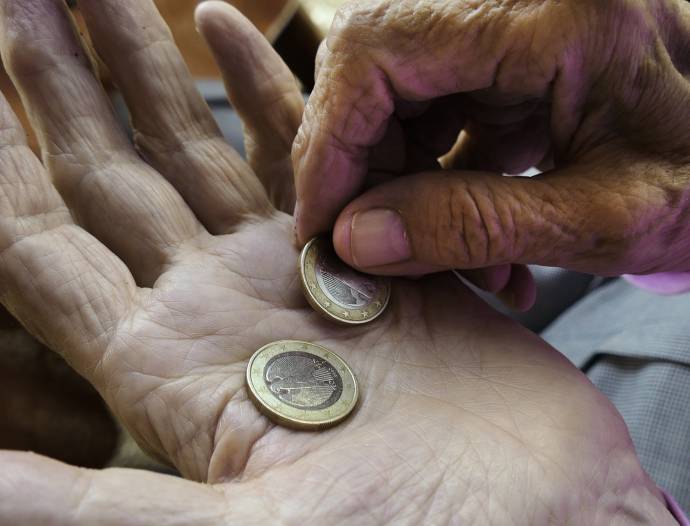All our election coverage can be found here, while our profiles of the major parties are here.
Virtually all parties quizzed by the STA ahead of the 3 June election support raising the monthly minimum wage from the current 638.42 euro to at least 700 euro or, in the case of some non-parliamentary parties, even up to in 1,000, but they differ on just how to achieve that.
The opposition Democrats (SDS) argue that measures to stimulate the economy, including lower taxes, will lead to higher salaries as more contributions and taxes will be paid. They also believe the country should shift to an hourly minimum wage.
Similarly, the opposition New Slovenia (NSi) proposes raising the general income tax break and reforming social charges to raise all net salaries by about 50 euro a month. The Alenka Bratušek Party also proposes reducing the personal income tax.
The coalition Social Democrats (SD) and the opposition Left propose redefining the concept of the minimum wage; the Left proposes an immediate rise to 700 euro net, while eventually the minimum wage should be at least 20% above the minimum cost of living, that is EUR 736.
The non-parliamentary Marjan Šarec List (LMŠ) believes that all personal incomes should be at least above the poverty threshold, and that the average pay should increase as well.
The coalition Pensioners' Party (DeSUS) argues the minimum wage should be at least 700 euro, one of the reasons being to stimulate people to work after the monthly social benefit payment was raised to EUR 385.
The party, which also proposes raising minimum pensions to 620 euro a month, proposes aligning social contributions for all types of work, similarly to the coalition SD and the Modern Centre Party (SMC).
Several parties also offer solutions to tackle precarious forms of work. The SMC has floated the idea of co-operatives for precarious workers and tighter oversight to prevent labour legislation abuse, and the Left wants to abolish private temporary job agencies at the EU level.
Many parties say that the ratio between pay and social benefits should be tackled so that people are stimulated to work, and quite a few also advocate fixing a maximum ratio between the highest and lowest pay.
The SD, whose platform deals extensively with employment and social affairs and which has been responsible for the brief in the government for years, advocates fixing a maximum pay ratio at companies by law, but the priority is building a consensus for obligatory distribution of profit among employees.
The Left wants the ratio between the highest and lowest pay capped at 1:5. The SMC and DeSUS also favour fixing a maximum pay ratio, but the SMC says that businesses should assess whether this is possible.
Likewise, the Alenka Bratušek Party believes that five-time the average pay would be a good solution that could be agreed on by employees and owners in social dialogue. The party also advocates state incentives for high value added jobs.
The SMC says that economic growth and investment will lead to higher pay. In exchange for greater labour market flexibility, workers should be secured greater social and legal security as well as greater participation in profit sharing and company ownership.
The LMŠ argues that successful state-owned companies should reward all employees for their success.
To fight unemployment and poverty, parties offer measures to stimulate business and active employment policy. The SD proposes allocating 1.5% of GDP a year for such policy.
The NSi suggests reforming labour legislation to give employers more leverage to lay off workers they are unhappy with, while offering workers a greater level of security.
The Left proposes testing out a shortened 35-hour work week, while several parties, including the SMC, LMŠ and the non-parliamentary Solidarity party, would try a universal basic income.
The NSi proposes UBI as a family policy measure for each child of up to the age of 18, while the party of the former PM Bratušek would introduce UBI for the 18-to-25-year-olds.
Other family policy measures proposed include paid sick leave for a parent staying at hospital with a sick child up to the age of six, and reinstating a 100% sick pay for parental leave as proposed by the SD.
The non-parliamentary United Right promises 3,000 euro for every newborn, a promise topped off by another 1,000 for every next newborn, while the SDS pledged to provide young people with an interest-free housing loan, the principle of which they would reduce by 20% for each newborn.
A healthy economy is the key to fighting poverty, the SDS says, proposing lower labour costs, active employment policy and adjusting the social transfers system.






